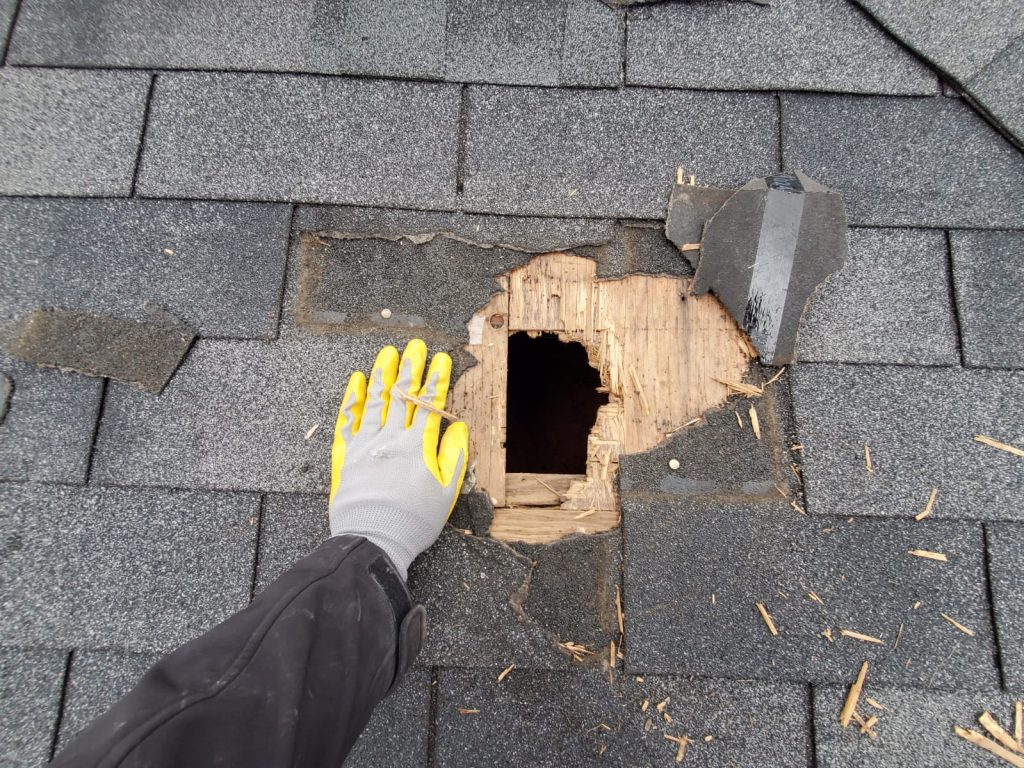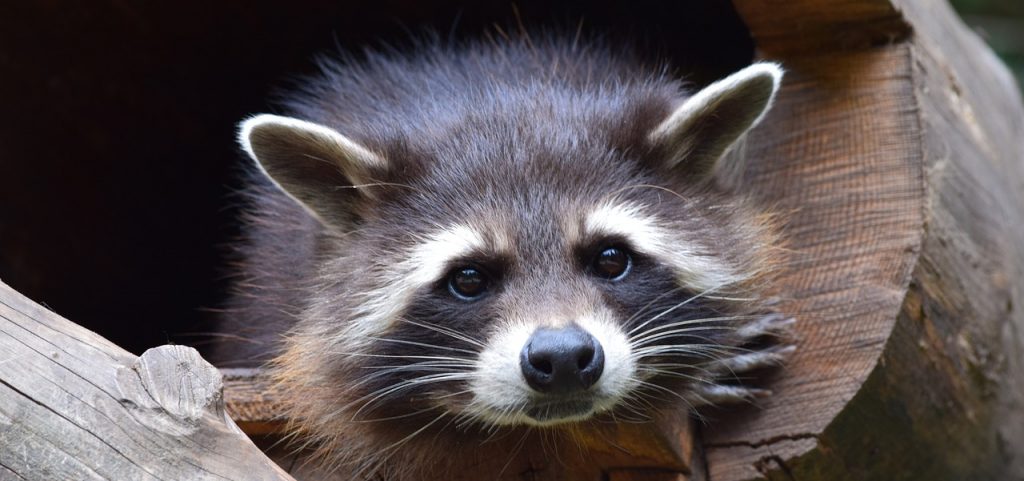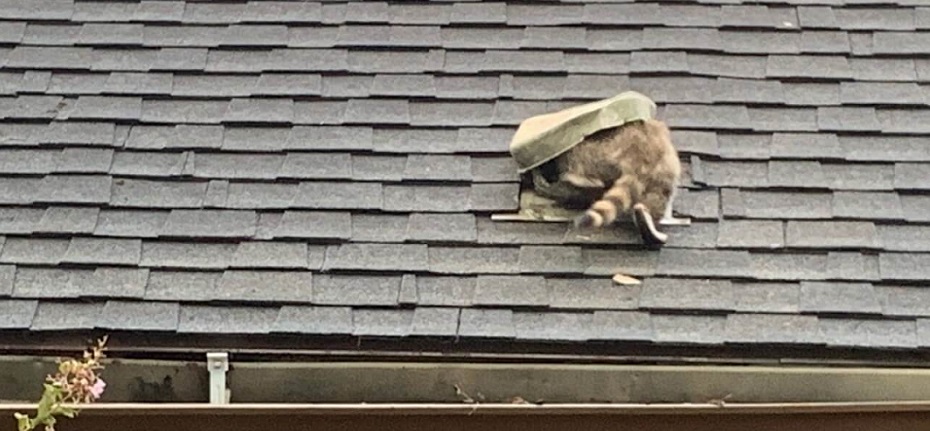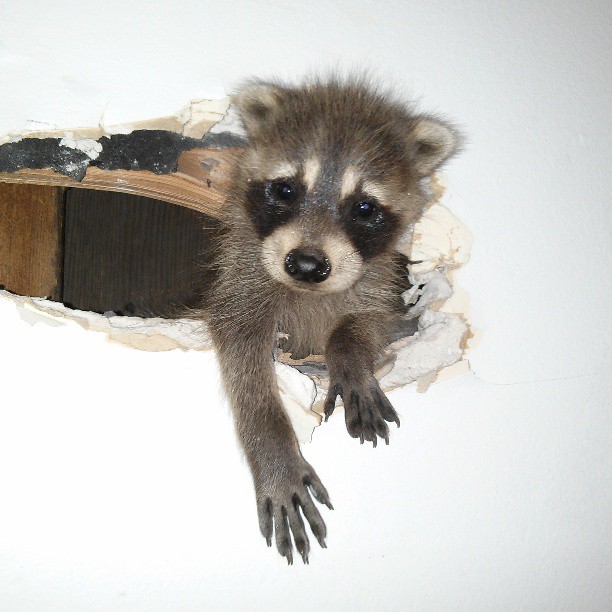Raccoons in your house or on your property can cause significant damage. It is much easier to keep raccoons away instead of trying to get rid of them.
A raccoon’s natural habitat is woodland areas near water sources such as streams, marshes, and rivers. Wild raccoons typically nest in tree cavities, rock crevices, underground burrows, and the abandoned dens of other animals, such as muskrat lodges. Raccoons have adapted to live in urban and suburban habitats. In suburban areas, raccoons tend to use insulation in attics for nests or attics as denning sites. They also take residence in sheds and other similar buildings, as well as crawlspaces and areas under buildings and decks.
Keep Raccoons Away from Property
In recent years, more raccoons than ever are flocking to densely populated towns and cities. The lack of natural predators, the never-ending food supply, and the safety of our homes provide them with everything they need in order to survive. Ontario has an estimated raccoon population of one million, and Toronto has been dubbed the raccoon capital of the world.
Ultimately, the best way to protect your property is through prevention. Here are a few measures you can take to keep raccoons away.
Landscape Your Yard
Raccoons are infamous nightcrawlers that target suburb roofs. Your roof is more accessible to raccoons with lots of overhanging trees and branches. Trimming or removing these kinds of trees can make it harder for raccoons to climb onto your roof and enter or damage your attic.
Protect Your Trash
Raccoons can’t resist trash, so you’ll need multiple strategies in this area. Secure non-locking trash can lids with bungee cords or cinder blocks. Double-bag waste meat items to reduce the odor. If possible, keep trash in your garage at night, and bring it out for pick-up only.
Fence the Garden
Since raccoons are skilled climbers, the most effective fence to install is electric. Use a 2-wire electric fence, placing wires 6 and 12 inches above the ground. Set the fence on a timer set to run only after dark.
Remove Food
Just like most pets, raccoons can’t resist the smell of nearby food. Gather any rotten produce or fallen fruit in veggie gardens or laying in the grass. Bring bird feeders indoors at night or hang them in a spot that isn’t accessible to raccoons.
Keep Pets Secured
Speaking of food, place pet food inside overnight as well as your pets. Raccoons carry rabies and other diseases that can be passed along to your furry friend. Make sure to routinely give your pets their shots to help protect them from the parasite’s raccoon’s pass.
Raccoons in Homes
Raccoons may at first look furry and cute, but don’t let their exterior fool you. They are smart, curious, and extremely determined to do anything to make your house their den site.
Here are a few factors that make your home attractive to raccoons:
- Food: Easily accessible food through feeders, fallen fruits, and trash cans
- Shelter: Woodland environments are their natural and preferable shelters because they mimic their natural environments.
- Mating: During the spring, female raccoons look for a safe space (warm and dark areas) to raise their young.
There are many ways a raccoon can break into your home like:
- Tore open walls
- Roof vents
- Roof edge
- Fascia Boards
- Loose shingles
- Soffits
- Chimneys
- Pet Doors
- Open doors and windows
Prevent Raccoon Infestation in Your House
Chimneys are a standard route of entry for raccoons. Raccoons are naturally attracted to nesting spots that are warm, safe, and secluded for protection. If your home has a chimney, installing a chimney cap can help prevent raccoons from entering.
Professional Raccoon Prevention
If a raccoon cannot find an entrance, it can create its own. They are strong enough to rip through shingles and plywood. They are crafty enough to find the construction gap where the soffit meets the roof return. The experts at Critter Control can not only find all potential entry points but also repair them to keep raccoons out.
If a raccoon is still in your home, do not try to trap it yourself. Raccoons are naturally shy animals that prefer to retreat when they sense humans nearby. They will use their sharp claws and teeth to attack a person or pet if they feel threatened.
Many diseases carried by raccoons are dangerous to humans. People know the pests best as vectors for rabies, though a parasite in their waste called raccoon roundworm is also a significant concern. These health issues typically arise through direct contact with the animal’s body fluids.
The habitat modification outlined above do work, but they will not get rid of a raccoon. Frightening devices only temporarily work, and there are no toxicants regulated for raccoons.



